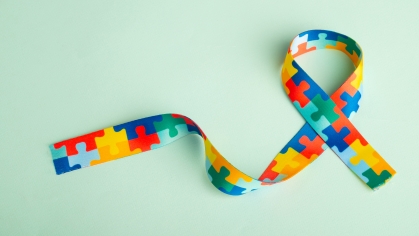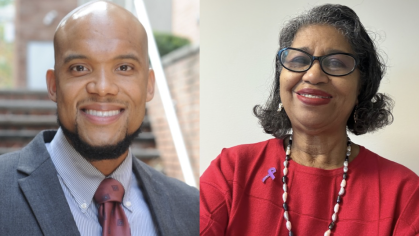An Interview with Dillon Reitmeyer SSW’20: National Disability Employment Awareness Month
Tell us a bit about your journey to social work.
I studied philosophy and linguistics at Rutgers during my undergraduate education, which seems like a far cry from social work. After working for a few years as a writing tutor, my mother, a special education teacher, urged me to check out the Rutgers School of Social Work MSW program. Social work seemed like a profession where I could put my education to practical use. And now, a few years later, I have my MSW and I’m pursuing a PhD in social work at Rutgers as well.
What is the significance of this month to you?
It’s worth noting that I have a younger brother with Autism Spectrum Disorder. He’s been a constant source of inspiration for me and is a big part of the reason that disability policy is a research interest of mine. National Disability Employment Awareness Month is significant for so many reasons. It’s a month where we can acknowledge the economic injustices that people with disabilities face. It is especially relevant given the economic, social, and emotional turmoil the COVID-19 pandemic has wrought on people with disabilities as well.
There is still a struggle to create equal economic opportunities for people with disabilities. The fight to end subminimum wage working arrangements, create inclusive work environments that comply with the regulations set out by the Americans with Disabilities Act, and end the social stigma associated with needing or receiving workplace accommodations is ongoing. This is a month where we can all express solidarity with people with disabilities and support their struggles for fair, living wages in community-based settings.
What are some ways people can commemorate National Disability Employment Awareness Month?
Spread the word! Use social media to educate people on the political struggles that people with disabilities engage in every day. If you belong to a federal, state, or local agency, or any kind of association dedicated to providing social services, spread the word through newsletters or agency emails.
What can the social work profession or social workers do to bring awareness to disability employment beyond this month?
I think one thing we need to bear in mind is that these problems will not leave us once October ends. Regardless of where the social media spotlight is, there are real, material challenges that people with disabilities face on a daily basis regarding employment and economic justice. One thing I ask people to reflect on is the universality of disability. While some disabilities may be developmental or genetic, or may be acquired through some kind of injury, others are acquired simply by aging. In the end, I hope we can stay humble and continue to educate ourselves by doing our best to take the lived experiences of people with disabilities to inform socially just policy making.
This story was created in partnership with Rutgers School of Social Work's Inclusion, Intersectionality, Diversity, Equity, and Advancement (IIDEA) Committee in support of our commitment to diversity, equity, and inclusion.



